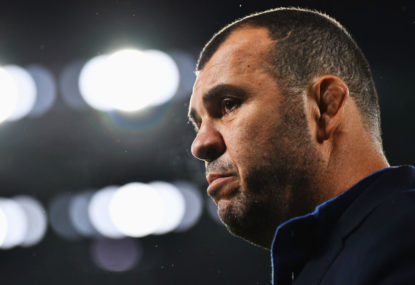The Tests against Ireland in June mark the beginning of the countdown for the Wallabies and their assault on the Everest of winning the 2019 Rugby World Cup tournament in Japan.
The squad that Michael Cheika selects and the changes he makes to the leadership group for these Tests against Ireland will be crucial in a successful conclusion to the assault on Rugby World Cup 2019.
The Rugby World Cup 2019 tournament will be won or not won depending on selection decisions that Cheika makes regarding the Wallabies squad to play in the June Tests against Ireland. The reason for this is that Cheika’s Wallabies have only four campaigns before going to Japan.
The squad that is going to go to Japan has to be put together now.
We are now far enough into the Super Rugby tournament to give Cheika some perspective (he didn’t have earlier on) on the Test capabilities of the players he has to choose from.
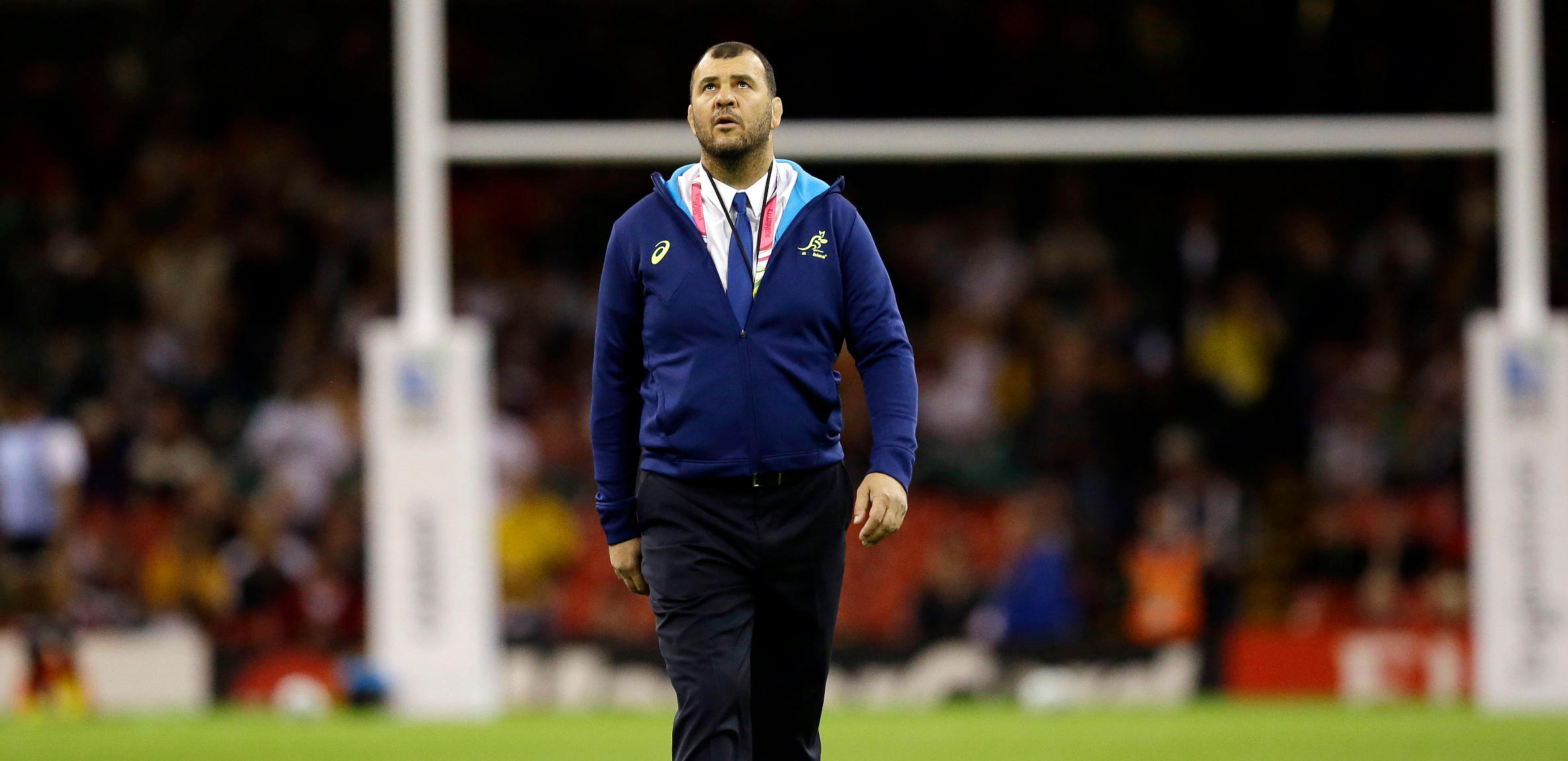
Michael Cheika (Image: AAP)
To put the discussion of Cheika’s 2018-19 Wallabies into some perspective, here are some thoughts about selection policy that several great coaches have expressed.
Alan Jones: A key factor in selecting a team is its shape. By this notion of “shape,” Jones (a very good selector in his own right) means that the best player for the position needs to be the first choice selection, rather than the forward or back who is not suited for the position but is one of the best players available to the coach.
Bob Dwyer: Look for the player with the x-factor beyond the requirements of his position and ensure that you keep that player in his designated position. Do not, for example, waste a dynamic second-rower by playing him as a flanker.
Fred Allen: “The secret of selecting,” Fred Allen, the only undefeated All Blacks coach, told the New Zealand rugby journalist Phil Gifford, “is not what the player’s doing now. It’s what he is capable of doing in the future.” In other words, always try to leave some growth in your team.
Steve Hansen: “You can’t keep all the old guys,” Steve Hansen, the current All Blacks head coach told Gifford, “but you can’t get rid of all the old guys either. You have to have that experience to win Tests.”
In other words, keep the old guys if they are crucial to winning, say, the Rugby World Cup tournament, and are demonstrably better in big Tests than other potential successors. Think Richie McCaw and Dan Carter in Rugby World Cup 2015. But move on when it is obvious that a player’s time is up.
With these four factors in mind, ‘shape’, ‘x-factor’, ‘growth’ and ‘experience’, and accepting that they sometimes conflict, let us look at some of the decisions facing Michael Cheika in constructing his 2018-19 Wallabies squad.
This discussion is not intended to be definitive about the players needed to be selected. It is intended to be generalised and illustrative of possibilities.
The first issue to be resolved, to my mind, is the matter of who should captain the Wallabies.
And the follow-up to this matter is the opinion that Cheika needs a new captain to take his 2018-19 Wallabies into Rugby World Cup 2019.
There are a number of problems with Michael Hooper’s captaincy of the Wallabies, unfortunately.
He does not get the best out of his players, on and off the field.
Hooper was present, for instance, when Nick Phipps disgraced himself and his code at the Woollahra Hotel a week or ago.
Any captain with gravitas or mana (a Maori word replete with meanings of status, prestige, pride and leadership, think ‘Buck’ Shelford) would have stopped Phipps well before he embarked on his mad-cap behaviour.
On the field, too, Hooper is inclined to make ‘heroic’ decisions which frequently involve turning down easy penalty kicks.
The players, moreover, do not take much notice of his instructions in tight situations, as he himself has acknowledged after many disappointing Waratahs losses.
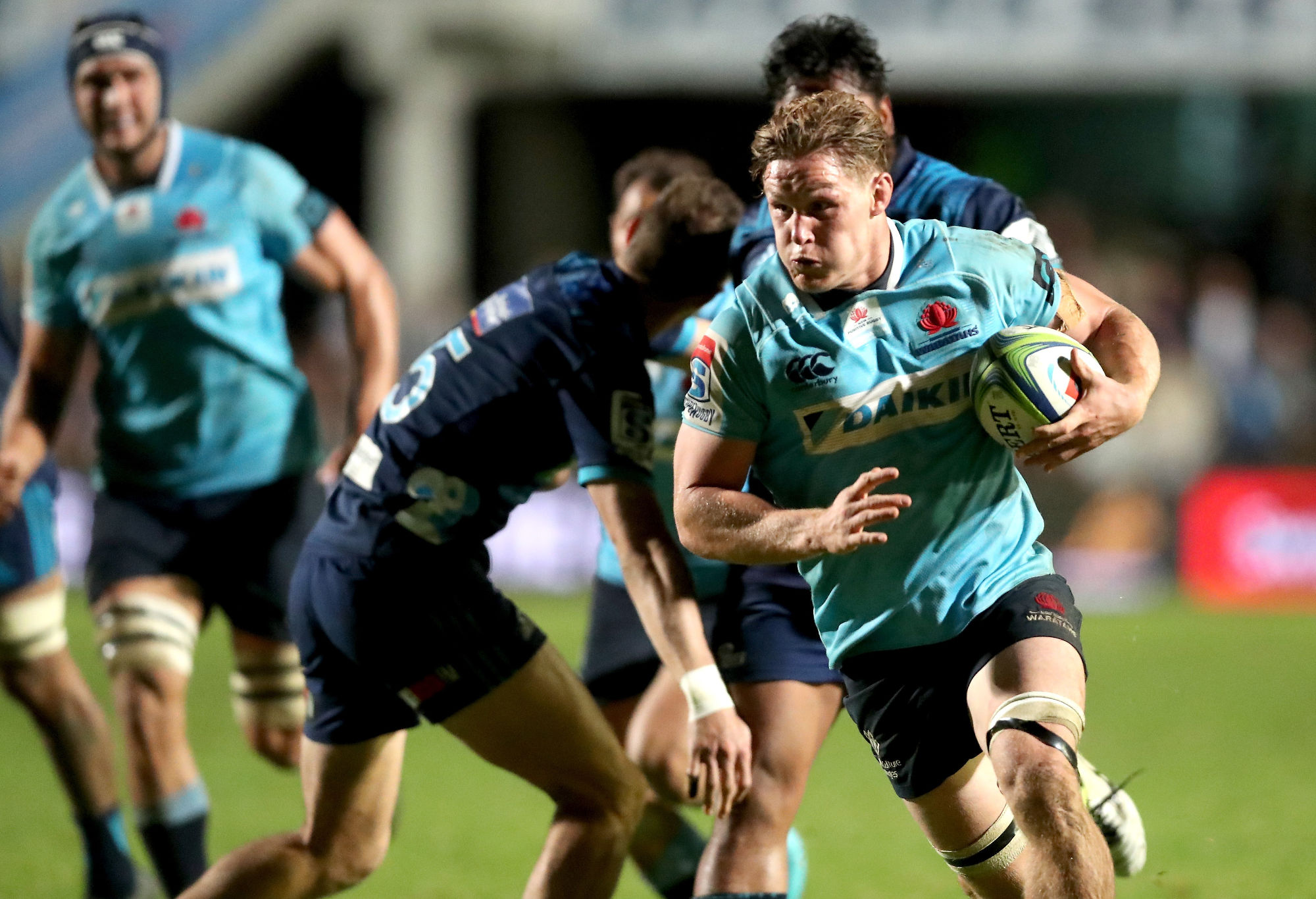
Waratahs captain Michael Hooper (AAP Image/Jeremy Ng)
There is only player right now who has the stature and the game to captain the Wallabies – and that player is Will Genia. When Genia speaks to his fellow players, they listen to him.
His impact on the match, too, with his all-court game, is much stronger than that of Hooper’s. Example: the Rebels were holding the Crusaders 10-10 at Melbourne, after 30 minutes or so, before Genia, who had played brilliantly, left the field with an injury. The final score was 55–10 to the visitors!
The Sky Sports bench produced another startling statistic regarding Genia’s influence: When he has been on the field for the Rebels this season, they have been +74, when he is off the field the Rebels are -110.
Genia, it seems to me, must be made captain of the 2018-19 Wallabies, even if he is not available for the first Test against Ireland.
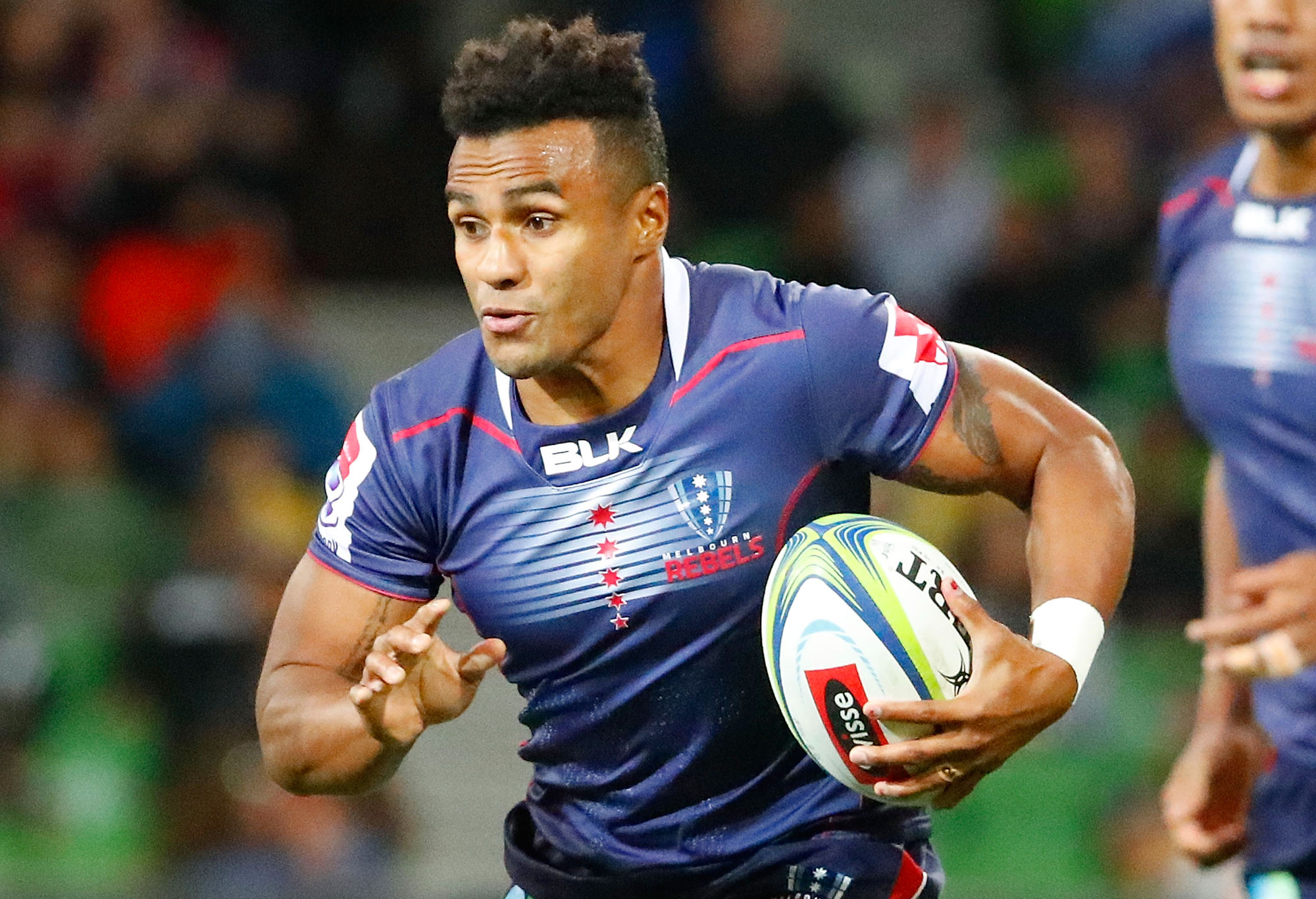
Will Genia of the Rebels (Photo by Scott Barbour/Getty Images)
We come now to the issue of where Israel Folau should play in a reconstructed Wallabies team, fullback or right winger.
We know his preference for playing fullback through a tweet made by his wife, Kiwi netballer Maria Folau, during the Waratahs’ 24–21 loss to the Blues at Brookvale Oval:
Folau is a great player (as he showed in the first half hour of the Waratahs versus Crusaders match) but he is not, repeat not, a great fullback.
This is not unusual. The same analysis could have been about David Campese, another great winger who fancied himself in the fullback role.
Folau has no positional sense as a fullback. He rarely, if ever, makes a try-saving tackle, as the Crusaders match revealed once again. His kicking out of hand is erratic. He is lazy on the chase for high balls. And so on.
When the Crusaders followed their gameplan of kicking to Folau, putting him right in the game effectively, he was absolutely brilliant. But when the Crusaders threw out their gameplan and stopped kicking high balls to Folau, the fullback essentially faded out of the game.
Compare Folau’s play at fullback with the highly skilled and devastatingly effective game of Ben Smith where the All Black is engaged in attack and defence seemingly throughout the game.
The picture changes dramatically for Folau when he has the freedom to roam, run and leap as a winger, the position he played at the start of his Test career so sensationally against the British and Irish Lions.
I would replace Israel Folau at fullback with Kurtley Beale and use, say, Dane Haylett-Petty as the winger/fullback on the left wing, in the manner of Israel Dagg. Or if Cheika wants speed over reliability, then he can opt for Marika Koroibete.
Kurtley Beale has many of the skills (with the obvious exception of tackling, alas) that Ben Smith has as a fullback. He can create breakouts from broken play and, like Smith, can play the role of the blindside playmaker or first receiver very effectively.
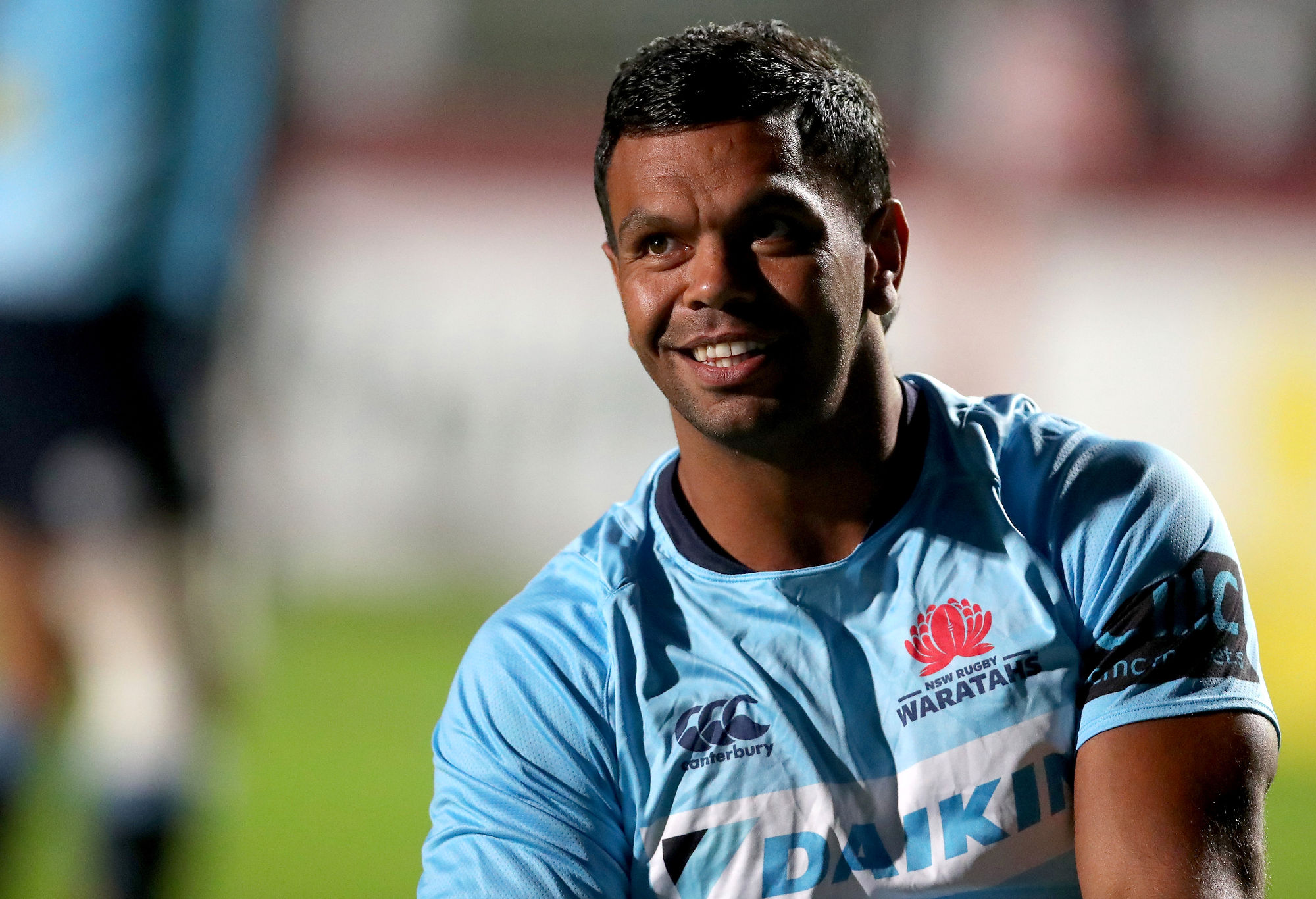
Kurtley Beale of the Waratahs (AAP Image/Jeremy Ng)
This brings us, in turn, to the centre pairing.
The favoured combination these days is a runner/passer/kicker at inside centre and a defender/fixer, in the Conrad Smith mode, at outside centre.
Samu Kerevi has great potential to be the strong inside centre in the Ma’a Nonu manner, although his latest performance against the Sunwolves was disappointing, to put it mildly. But he is young and if Stephen Larkham is as good an attack coach as he was as a player, he should be able to develop Kerevi’s game to that of game-breaker status.
The same cannot be said of Tevita Kuridrani. He is past it. He has not got the legs or the game to last through to Rugby World Cup 2019 as the starting outside centre for the Wallabies. He was nondescript, again to put it mildly, against the Rebels at the weekend, as he has been throughout this season.
But naming his replacement at outside centre is not an easy matter. The best choice it seems to me is Curtis Rona.
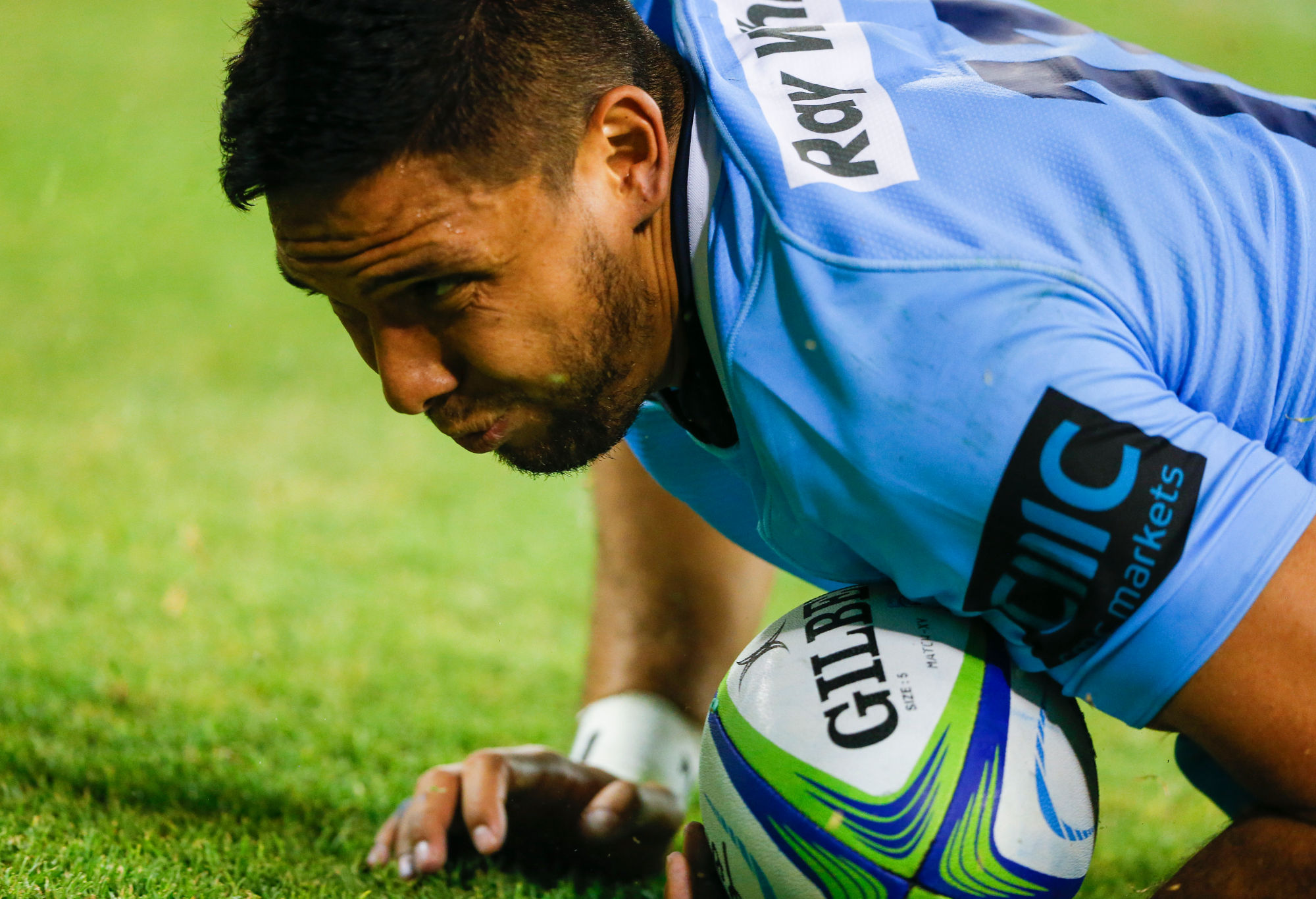
(Photo by Gabriel Rossi/Getty Images)
And as an exciting talent to be developed in the Wallabies environment, I would suggest Cameron Clark, a speedster with high rugby intelligence and a range of passing and kicking skills. Clark has growth potential as a winger and as a centre. He is inexperienced in the 15-man game but he has the speed and skills to become an outstanding Wallaby outside back.
Both these players, Rona and Clark, were excellent for the Waratahs in their sensational match over the weekend with the Crusaders.
Bernard Foley and Will Genia are the obvious halves combination.
But their back-ups are harder to identify. Jake Gordon (Waratahs), Joe Powell (Brumbies) and Michael Ruru (Rebels) could or should be the back-ups to Genia.
Larkham has mentioned Ruru as a back-up possibility. He played splendidly for the Rebels in their strong victory over the Brumbies at the weekend.
Larkham also endorsed Nick Phipps as a back-up probability. This sort of safety-first selection restricts the possibilities the Wallabies have, a year out from the Rugby World Cup 2019, to create a dynamic squad that has growth potential built into it.
But the back-up number 10 is not so easily resolved. Michael Cheika has been derelict in this area over his time as Wallabies coach. He has gambled, so far, successfully, that Foley will not get injured.
But an injury putting Foley out for some Tests is just about inevitable. Starting Beale is not the solution as it goes totally against the Alan Jones principle of shape.
Coach Cheika now has to make several decisive selection decisions. He needs a player who can immediately fit into the Wallabies starting XV and guide the side around the field.
That player is Reece Hodge. When he came into the number 10 position for the Rebels late in their match against the Brumbies, he gave an edge and direction to the attack that enabled his side to finish off their win.
Hodge also has an enormous boot, both punting and goal-kicking. Bernard Foley showed once again against the Crusaders that any kick at goal over 45m is problematic for him. Hodge can boot goals from inside his own half, an asset for the Wallabies in tight Tests.
The third number 10 should be Jack Debreczeni, a player like Hodge with a huge punt, who could develop really well with expert coaching from Larkham.
This brings us to Quade Cooper.
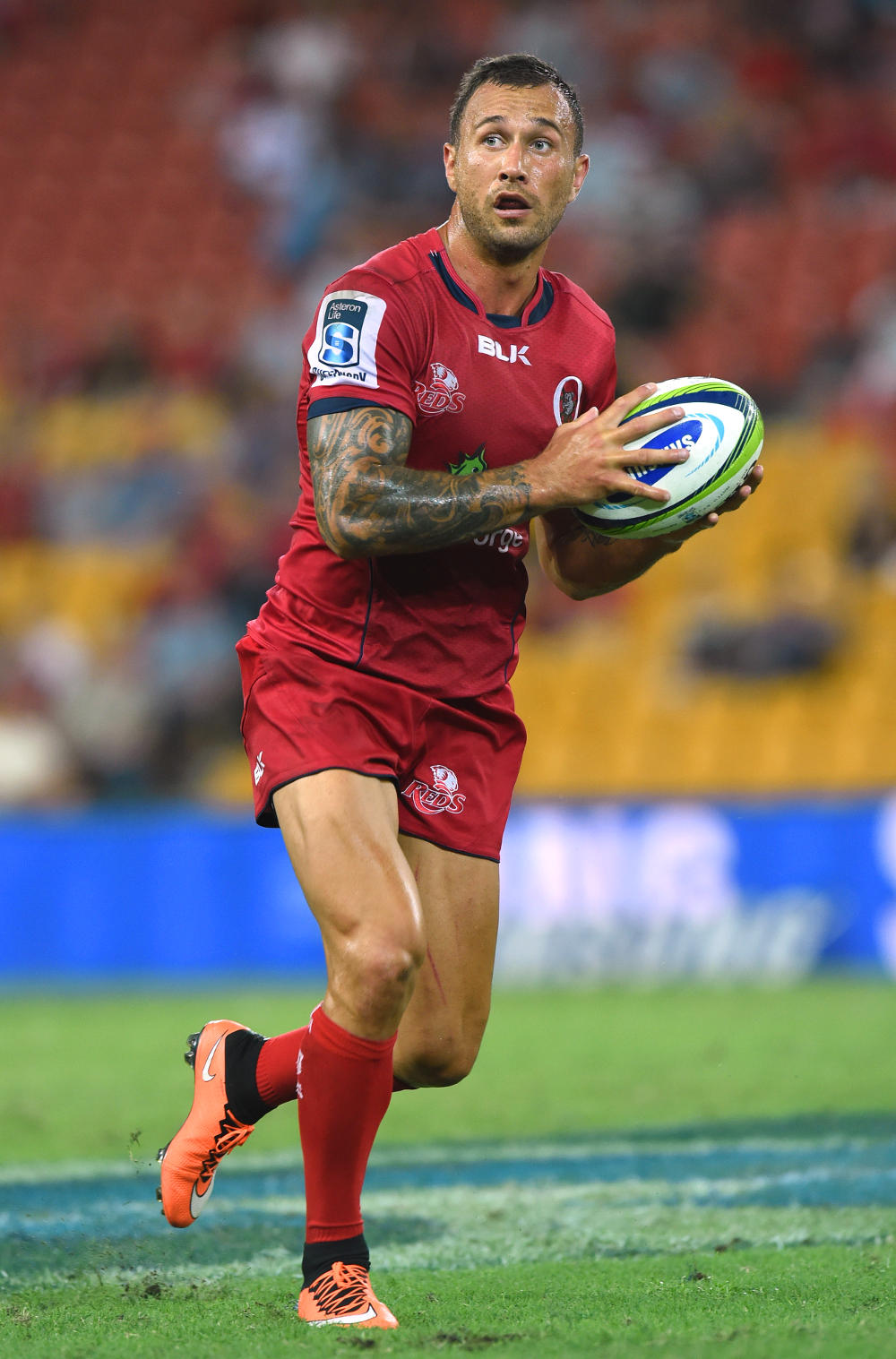
(AAP Image/Dave Hunt)
Under no circumstances should Cooper be brought into the Wallabies squad at this time.
He is being paid $600,000 a year by the Reds franchise and Rugby Australia. Brad Thorn, the Reds coach, does not want him and rightly so. But Thorn is happy for Cooper to play for another franchise.
Cooper refuses to take up offers from the Brumbies and the Rebels to finish off the 2018 Super Rugby season with them. This refusal is unacceptable behaviour, or should be, as far as Rugby Australia is concerned.
This behaviour, too, confirms the problem that Cooper has presented various teams he has been involved with, namely that his interests seem to come before those of the team he is playing for.
Now we get to the second major decision that Michael Cheika must make: how he resolves the intractable problem of Michael Hooper and David Pocock, arguably the two best forwards in Australia, playing in the one position, number 7.
This is another issue that revolves around the proper shape of the Wallaby back three.
With Hooper and Pocock on the field at the start of the game, the Wallabies back-row is out of shape. It lacks a dynamic ball-runner and lineout option at number 8.
In Pocock’s late years he is no longer a tearaway player the role of no 7 requires. He is more of a negative force against an opposition rather than as a positive force for his side.
His best position for the Wallabies now is to come on off the bench, either as a replacement for Hooper or to go into the number 8 position, with Hooper remaining in the side as the openside breakaway. Generally bringing Pocock on late in the Test will be a defensive move, say, to protect a lead.
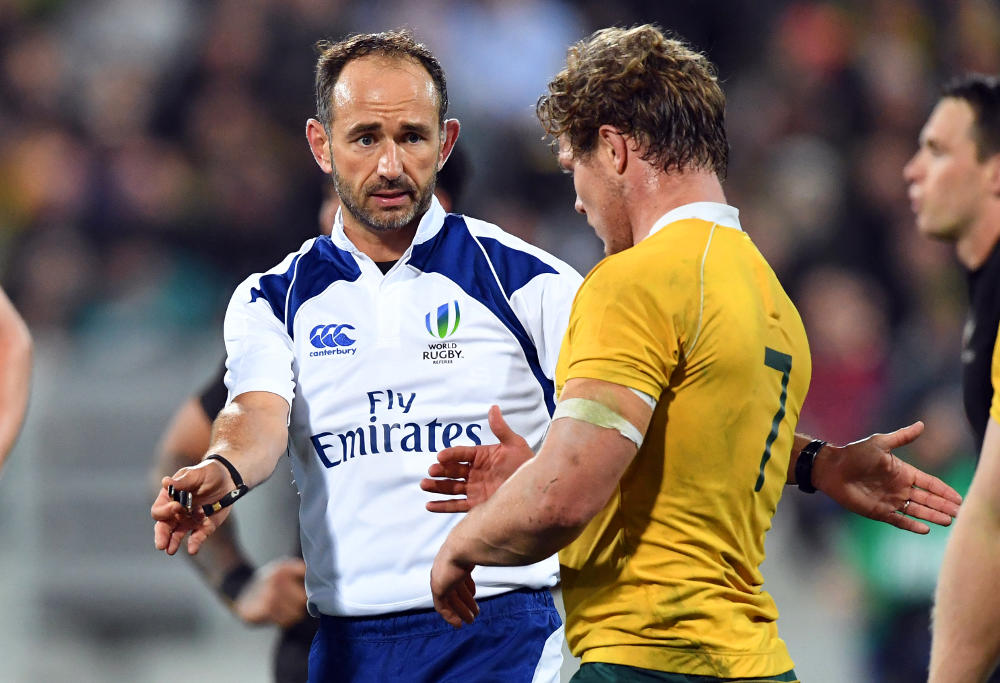
(AAP Image/SNPA, Ross Setford)
With Pocock no longer a candidate for the starting role at number 8, the position becomes available to a younger, bigger, more athletic player to become a starter. That starter should be Caleb Timu.
Cheika should also take a punt on the youngster Rob Valentini, 19 years of age, 193cm, 113kg. He was dynamic for the Brumbies against the Rebels and the sort of smash-forward, uncompromising runner in the manner of Toutai Kefu.
These players could be mixed with the usual picks like Jack Dempsey and strong candidate Angus Cottrell, 28, 191cm, 111kg, who has the same energy and fierceness that made Scott Fardy such a formidable Test player.
The Wallabies are strong with second-rowers, and a combination of Rory Arnold and Adam Coleman, backed up by Izaak Rodda, is an obvious way for Cheika to go.
I would make the observation, though, that Coleman has responded to the captaincy of the Rebels by muting his game. He needs to get some of the fire (but not the foul play) back into his game that brought him to the Test side when he played for the Force.
Steve Hansen’s observation about the need to retain experience when this need is obvious comes into play with the selection of Tatafu Polota-Nau as the hooker of the team.
If Jordan Uelese was not out injured and was available, I’d opt for Polota-Nau as the back-up hooker.
As for the front-rowers, I guess experience kicks in with Sekope Kepu and Scott Sio.
I like, however, the Reds combination of James Slipper and Taniela Tupou, a player with an x-factor (rare for an Australian forward) whose time has come to be a Test starter.
That’s my team. But with a view to encouraging discussion, I will set out Paul Cully’s Possible Wallabies 23 for the first Ireland Test which was published in the Sydney Morning Herald on April 21, 2018:
Scott Sio
Tatafu Polota-Nau
Sekope Kefu
Rory Arnold
Adam Coleman
Jack Dempsey
Michael Hooper (c)
David Pocock
Will Genia
Bernard Foley
Marika Korobeite
Kurtley Beale
Tevita Kuridrani
Reece Hodge
Israel Folau
Interchange: Jordan Uelese, James Slipper, Taniela Tupou, Izaak Rodda, Caleb Timu, Jake Gordon, Samu Kerevi, Dane Haylett-Petty.
Let the selection battle begin!





























































































